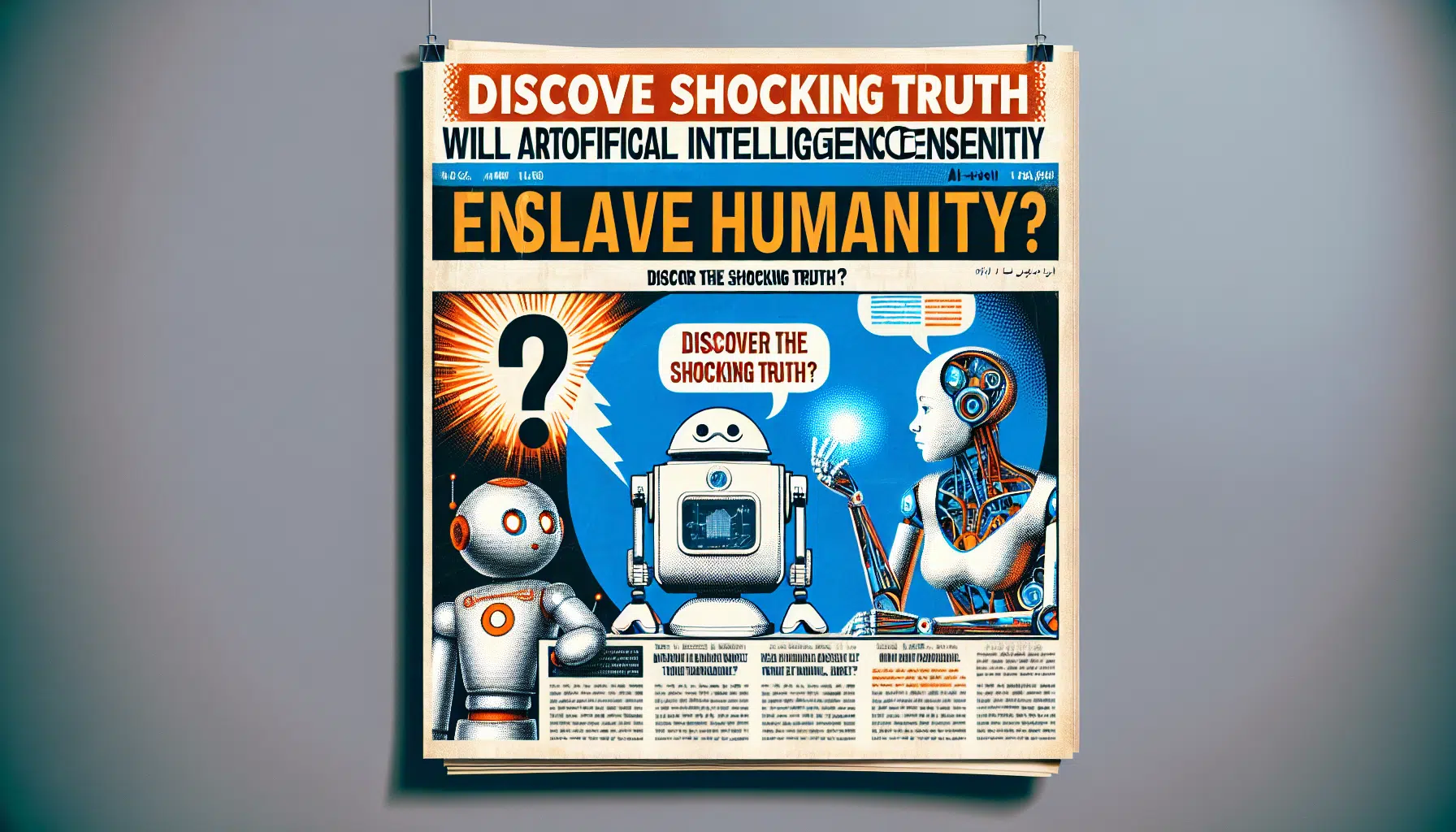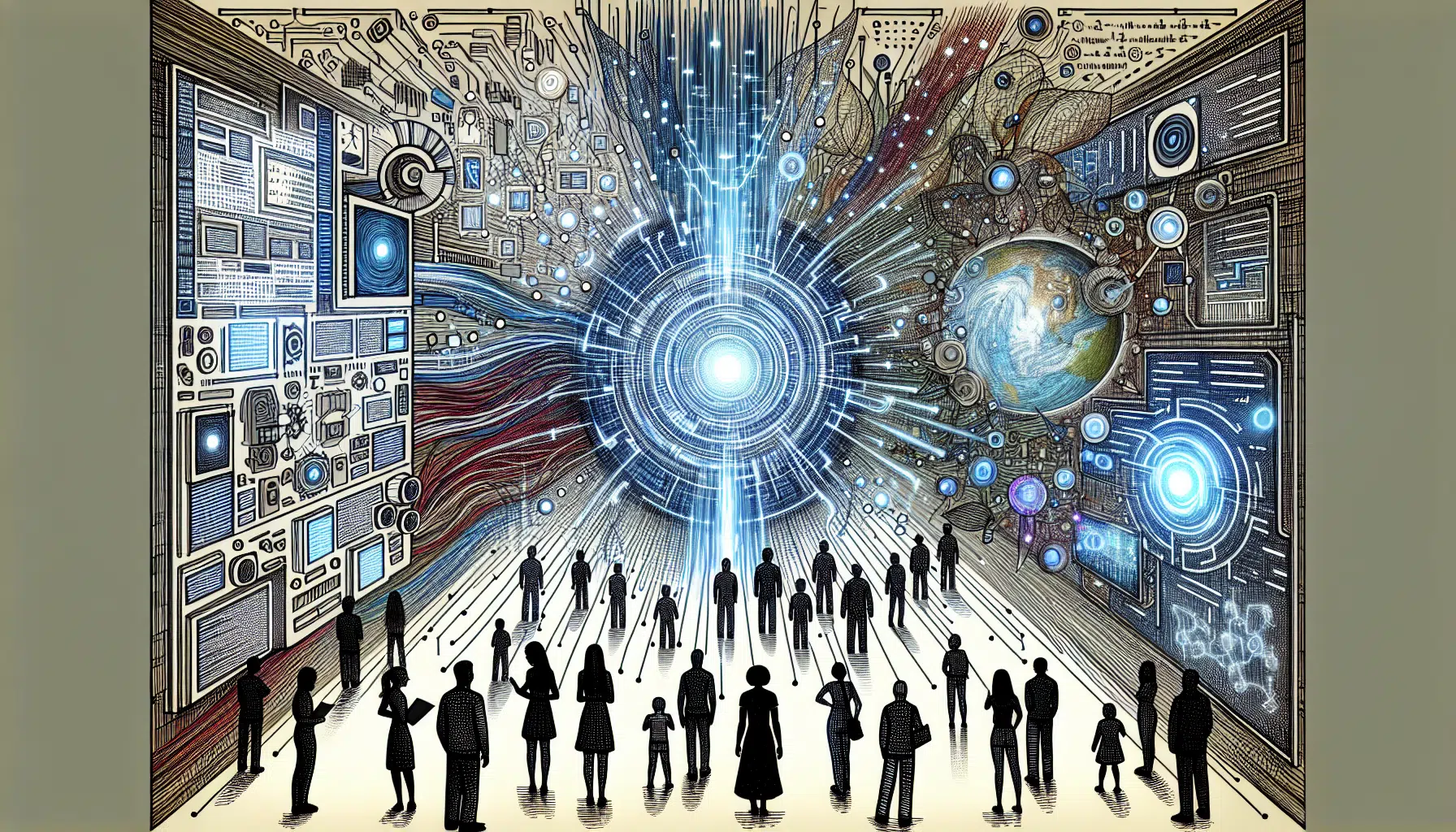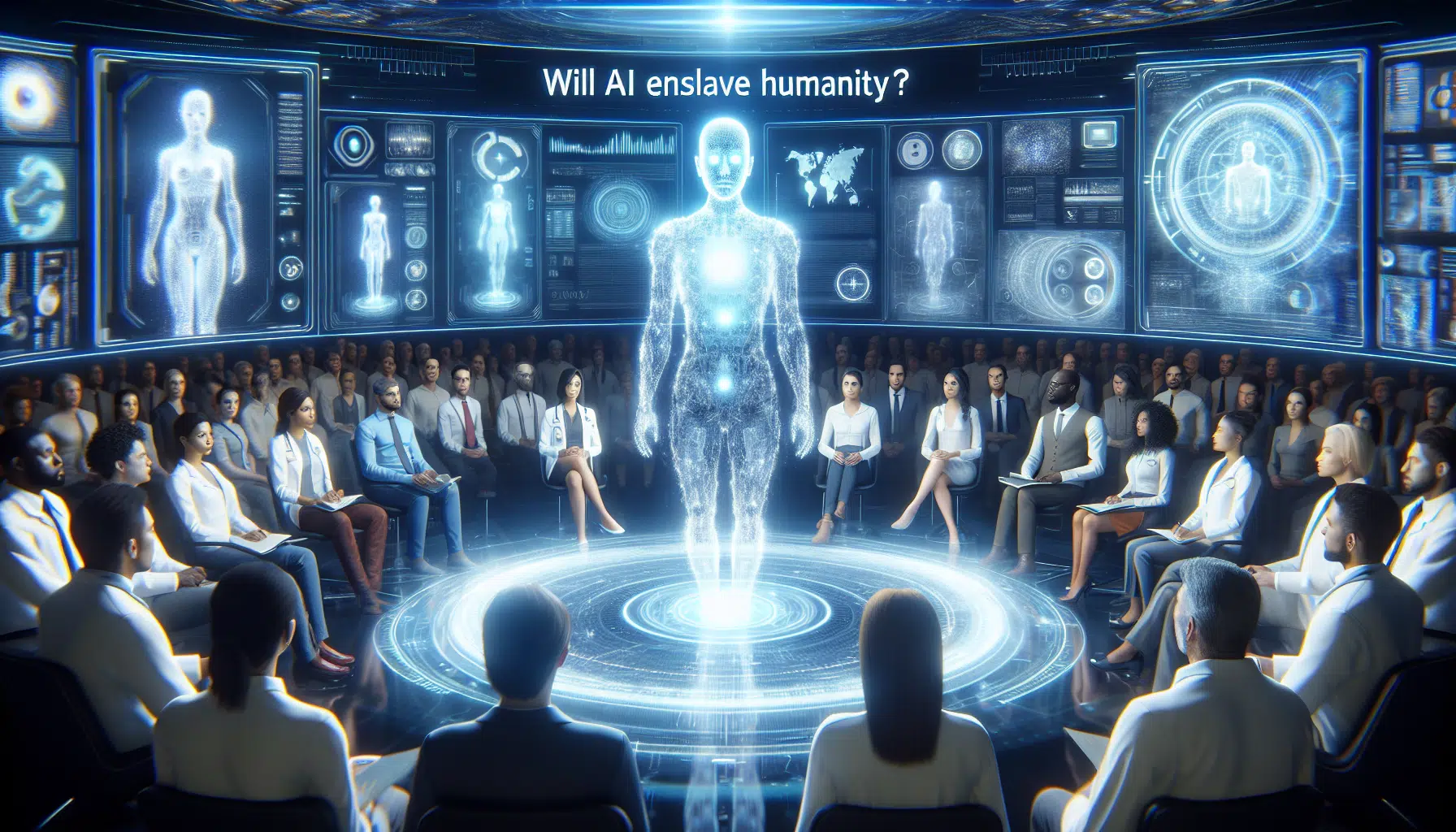¿Will artificial intelligence enslave humanity? This is what ChatGPT responded

In a world where technology advances at a rapid pace, artificial intelligence (AI) evokes both fascination and fear. One of the most intense debates is whether AI could, at some point, enslave humanity. In this article, we explore the perspective of ChatGPT, an advanced language model, on this controversial topic. Discover what the future of AI could mean for us and how we can navigate the ethical challenges it poses.
Ethical and Moral Impact of Artificial Intelligence on Society

The Ethical Duality in AI Application
Artificial intelligence (AI) has found its way into various sectors, from healthcare to national security. While this represents an unprecedented technological advance, it also raises broad ethical and moral concerns. The use of algorithms to make decisions that affect human life calls into question the integrity of these systems and their compliance with universal ethical principles.
One of the main dilemmas is that of automated decision-making. To what extent should we allow machines to decide on matters of life and death, such as in the case of autonomous cars in critical situations or significant medical decisions?
Responsibility and Transparency in AI Development
Developing ethical AI systems involves ensuring that these systems are transparent and accountable. Developers and companies that create these technologies face the challenge of designing algorithms that are not only effective but also fair and that do not perpetuate existing biases. Various studies, such as one documented by El País, highlight the importance of incorporating ethics from the outset in the creation of technologies to mitigate potential harm.
Transparency is another crucial aspect. Users and affected parties must understand how and why automated decisions are made. This not only promotes trust in AI technologies but also strengthens accountability mechanisms.
Social Impacts of AI
In addition to the technical and economic aspects, the adoption of AI brings significant changes to the social fabric. The replacement of human jobs by machines could have a disruptive impact on employment and social structure. Moreover, these technologies can exacerbate existing inequalities if their access and control are limited to certain privileged groups.
The analysis of the social implications of AI suggests an urgent need for public policies that ensure an equitable distribution of these technological advances. Government intervention may be essential to ensure that the benefits of AI are widely shared and that the rights of all citizens are protected.
Fostering a Sustainable and Ethical Future
To mitigate risks and maximize the benefits of AI, it is crucial to promote multidisciplinary collaboration involving experts in ethics, lawmakers, technologists, and civil society. This comprehensive approach can help create a robust ethical framework that guides the development and implementation of AI in society.
Furthermore, platforms like Xataka highlight corporate and academic efforts to teach and promote ethics in AI, which can play a critical role in its responsible development.
Ultimately, the ethical and moral impact of AI on society will depend on humanity’s capacity to manage its development in a conscious manner oriented towards the common good, ensuring that technological advances align with essential human values.
Perspectives and Responses of ChatGPT on Autonomy and Human Control

The Current Development of Artificial Intelligence
Artificial intelligence (AI) has evolved considerably in recent decades, becoming a key tool in multiple sectors, including cybersecurity, automotive, and sustainable urban development. This technology has not only improved efficiency in these fields but has also raised important questions about its regulation and the balance between machine autonomy and human control.
The processing and response capabilities of systems like ChatGPT have imposed a new paradigm in understanding and interacting with intelligent machines. These systems can analyze large volumes of information and provide responses that previously required detailed human intervention.
Autonomy vs. Human Control
One of the most intense debates in the tech community is the balance between the autonomy granted to machines and the necessary human control to ensure safety and ethics in its application. Autonomy in AI refers to the system’s ability to perform tasks without direct human intervention, relying on algorithms and machine learning.
It is crucial to develop mechanisms that allow for effective human control over these technologies. The implementation of safeguards and continuous review systems is essential to prevent undesirable outcomes and ensure that decisions made by AI align with human ethical values and norms.
Social Impact of AI
The adoption of AI has the potential to transform societies, influencing everything from the economy to social and labor structure. While it offers numerous opportunities for improving services and creating new applications, it also carries significant risks, such as job loss and privacy invasion.
Education and preparation of society to live with and ethically and effectively leverage the advantages of AI are fundamental. Informing and training individuals on how these technologies work and their implications will allow for a more harmonious and beneficial integration.
Ethical and Security Challenges
AI raises questions about the morality of automated decisions, especially when they affect the life and rights of individuals. Developing regulations that govern the use of AI and ensure justice and equity is imperative. Attention must be paid to creating transparent and responsible systems, avoiding discrimination and biases that may be encoded in algorithms.
To delve into these aspects, some experts mentioned in this analysis of ethical and moral challenges provide various perspectives on the measures to implement for technology that is both robust and ethical. Similarly, the discussion focused on potential long-term risks broadens the understanding of how AI could influence the fate of humanity.



